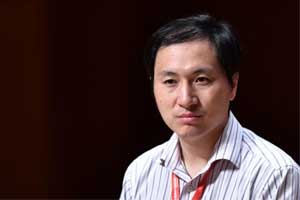- Home
- Medical news & Guidelines
- Anesthesiology
- Cardiology and CTVS
- Critical Care
- Dentistry
- Dermatology
- Diabetes and Endocrinology
- ENT
- Gastroenterology
- Medicine
- Nephrology
- Neurology
- Obstretics-Gynaecology
- Oncology
- Ophthalmology
- Orthopaedics
- Pediatrics-Neonatology
- Psychiatry
- Pulmonology
- Radiology
- Surgery
- Urology
- Laboratory Medicine
- Diet
- Nursing
- Paramedical
- Physiotherapy
- Health news
- Fact Check
- Bone Health Fact Check
- Brain Health Fact Check
- Cancer Related Fact Check
- Child Care Fact Check
- Dental and oral health fact check
- Diabetes and metabolic health fact check
- Diet and Nutrition Fact Check
- Eye and ENT Care Fact Check
- Fitness fact check
- Gut health fact check
- Heart health fact check
- Kidney health fact check
- Medical education fact check
- Men's health fact check
- Respiratory fact check
- Skin and hair care fact check
- Vaccine and Immunization fact check
- Women's health fact check
- AYUSH
- State News
- Andaman and Nicobar Islands
- Andhra Pradesh
- Arunachal Pradesh
- Assam
- Bihar
- Chandigarh
- Chattisgarh
- Dadra and Nagar Haveli
- Daman and Diu
- Delhi
- Goa
- Gujarat
- Haryana
- Himachal Pradesh
- Jammu & Kashmir
- Jharkhand
- Karnataka
- Kerala
- Ladakh
- Lakshadweep
- Madhya Pradesh
- Maharashtra
- Manipur
- Meghalaya
- Mizoram
- Nagaland
- Odisha
- Puducherry
- Punjab
- Rajasthan
- Sikkim
- Tamil Nadu
- Telangana
- Tripura
- Uttar Pradesh
- Uttrakhand
- West Bengal
- Medical Education
- Industry
WHO says creating panel to study gene editing

Geneva: The World Health Organization has said it is creating a panel to study the implications of gene editing after a Chinese scientist controversially claimed to have created the world's first genetically-edited babies.
"It cannot just be done without clear guidelines," the head of the United Nations health agency, Tedros Adhanom Ghebreyesus, told reporters in Geneva Monday.
"WHO is putting together experts and we are working with member states...to discuss the standards and guidelines that can cover the ethical and social safety issues," added Tedros, a former Ethiopian health minister.
Tedros made the comments after a medical trial, which was led by Chinese scientist He Jiankui, claimed to have successfully altered the DNA of twin girls, whose father is, to prevent them from contracting the virus. HIV-positive
His experiment has prompted widespread condemnation from the scientific community in China and abroad, as well as a harsh backlash from the Chinese government.
Tedros said WHO was in the process of setting up the panel. He did not, however, characterise the initiative as a direct response to the Chinese trial.
He also declined to speculate on whether WHO could envision a future where some form of gene editing could offer public health benefits.
The panel will start with "a clean sheet," Tedros said. "They can start by asking 'should we even consider this?" The group will include academics as well as WHO and government medical experts, he added.
"We have to be very, very careful...We should not go into gene editing without understanding the unintended consequences." Last week, the Chinese ministry of science and technology stressed its opposition to the gene-editing baby experiment, and demanded a halt to the "scientific activities of relevant personnel".
The Chinese scientist's claims were "shocking and unacceptable" and breached "the bottom line of morality and ethics that the academic community adheres to", vice minister Xu Nanping told state broadcaster CCTV, warning that it may have broken the law.
Medical Dialogues Bureau consists of a team of passionate medical/scientific writers, led by doctors and healthcare researchers. Our team efforts to bring you updated and timely news about the important happenings of the medical and healthcare sector. Our editorial team can be reached at editorial@medicaldialogues.in.


